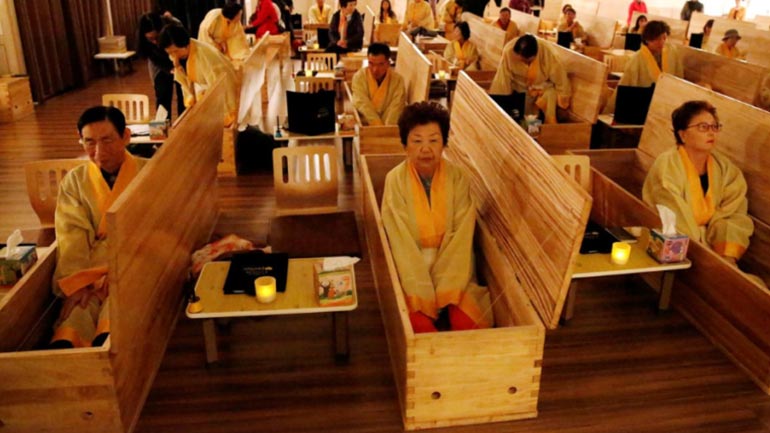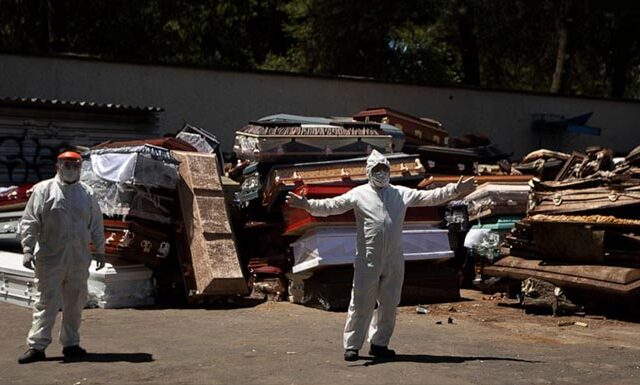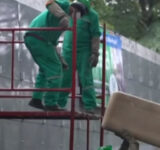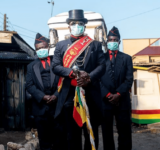For the last seven years Hyowon Healing Center has offered free funerals to the living in hopes of helping people come to peace with their passing or to encourage people to embrace their lives. More than 25,000 people have participated and can continue the message of death positivity.
The living funeral process
Guests start the event with a tea and proceed to have their funeral photo taken. Afterwards, guests are led to a changing room by a Korean grim reaper and asked to dawn the cremation shroud. Once they are changed they go toward their coffin and write their last rites. Apologies to family members? Goodbye ́s to children and partners? Then it’s time to say goodbye. Participants lay down as the lights go dark and their coffins are closed for the next ten minutes.
The service is attended by Koreans of all ages and demographics. Each with their own struggle. In a Korea Bio medical interview Choi Eun-mi, 39, a mother who participated in the event, said “While I was lying inside the coffin, I felt like I was suffocating and the fear of being alone and the desire to open the coffin and just run out intensified.” Choi went on to say that after a while however, she felt a sense of peace that she had rarely felt before, and her life flashed before her like she was watching a film. “Even the moments I had forgotten, memories that had made me feel happy, sad, and frustrated came back to me vividly,” Choi said. “The 10 minutes, which I believed would feel like an eternity in the beginning, was too short for me to recollect my life.”
Jeong Yong-mun, who heads the healing center said “We don’t have forever,” “That’s why I think this experience is so important – we can apologize and reconcile sooner and live the rest of our lives happily.”
What can the death care industry learn from Korean living funerals?
Losing a loved one will never be easy, but when there is an open discussion in advance of people passing it allows for more closure, and reminds everyone to enjoy everyday. While a living funeral might not be right for every culture, 25,000 people participating, shows the importance of the death care professionals being involved in the community and encouraging more conversation around death. Is there an event your organisation can host to help spread the death positivity movement?








